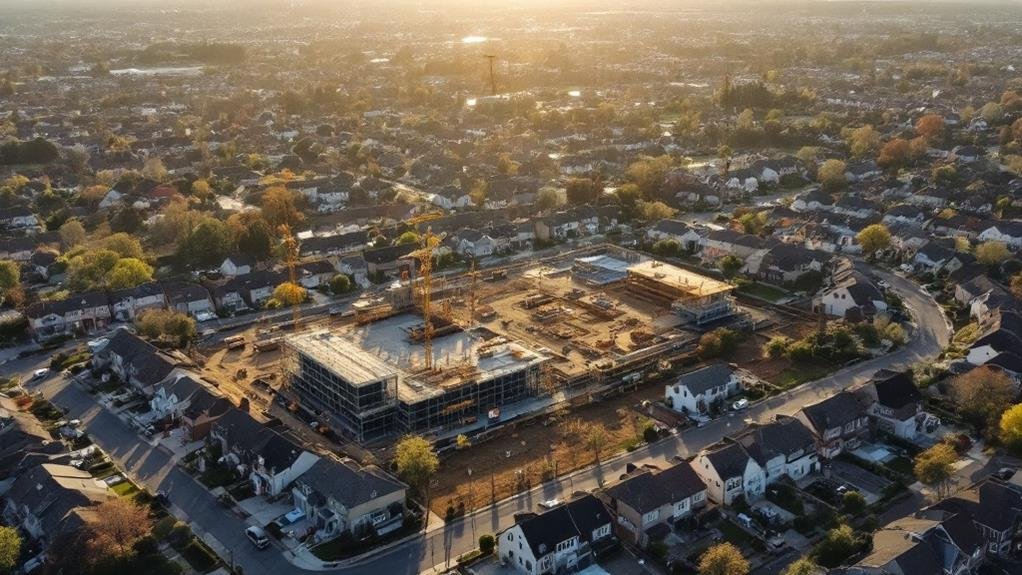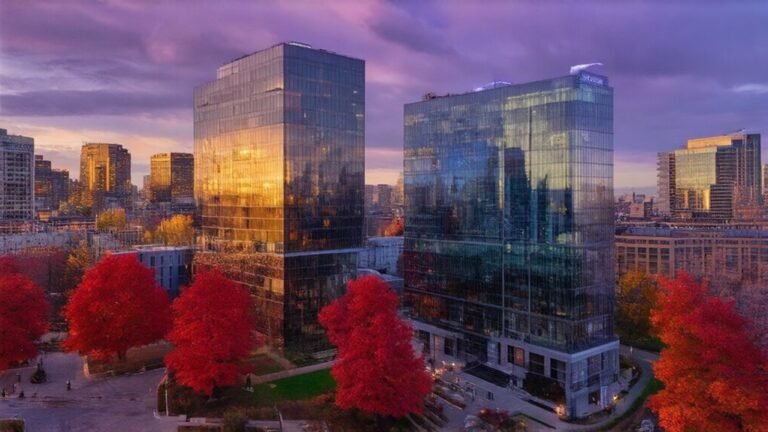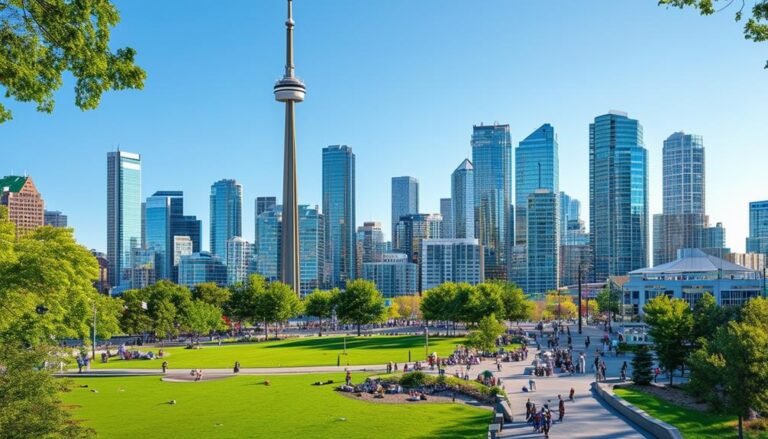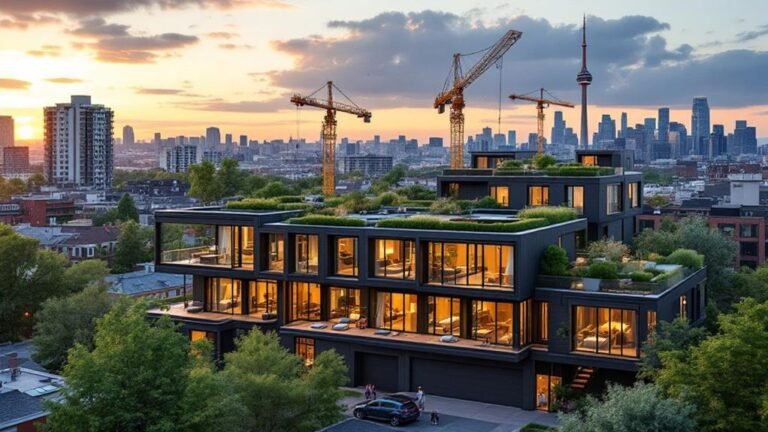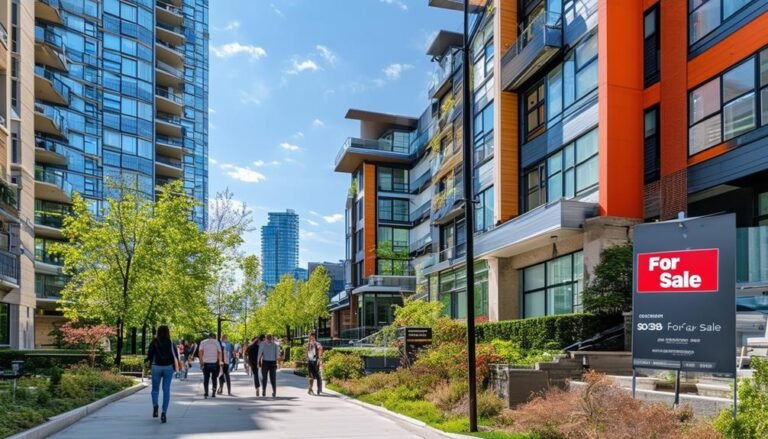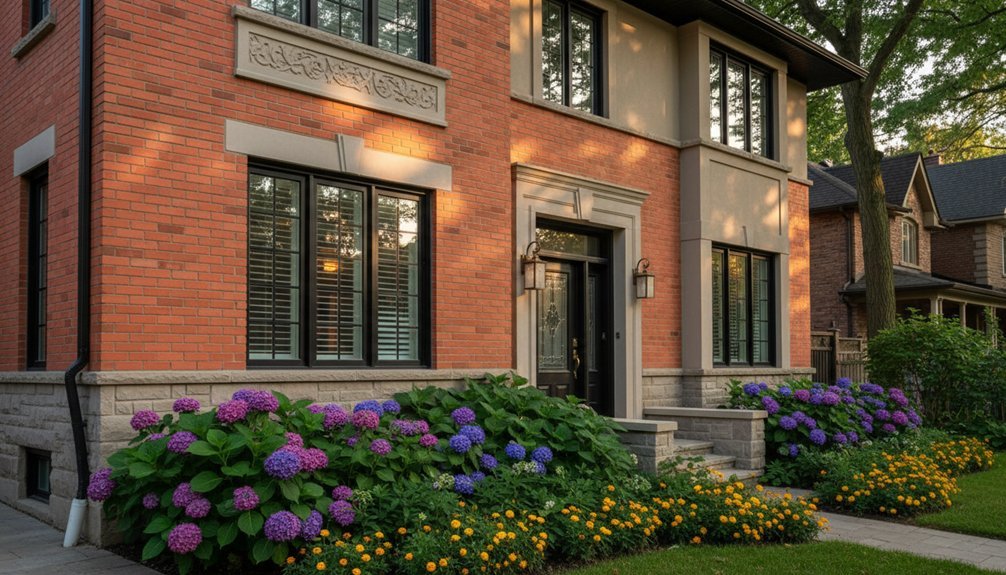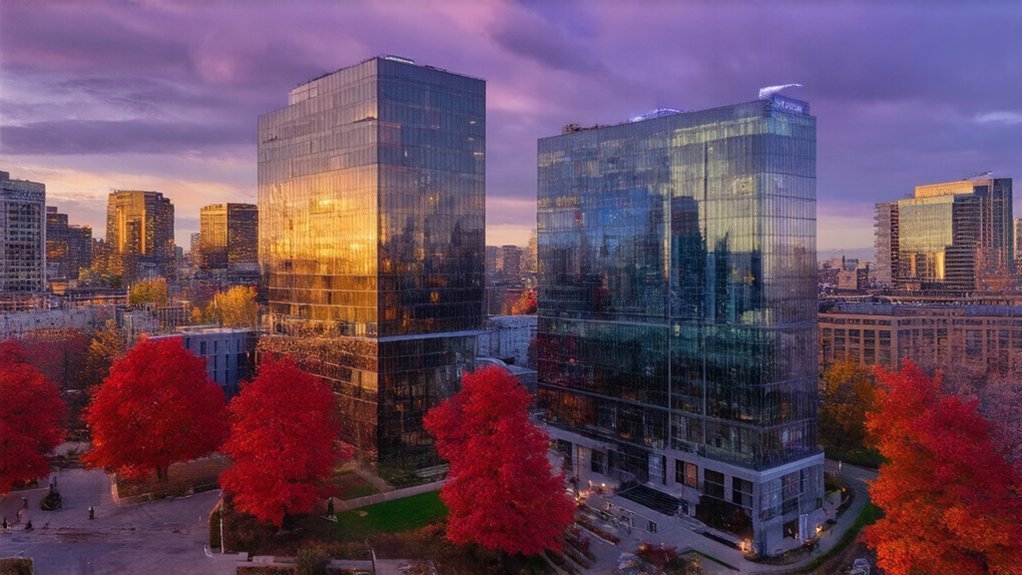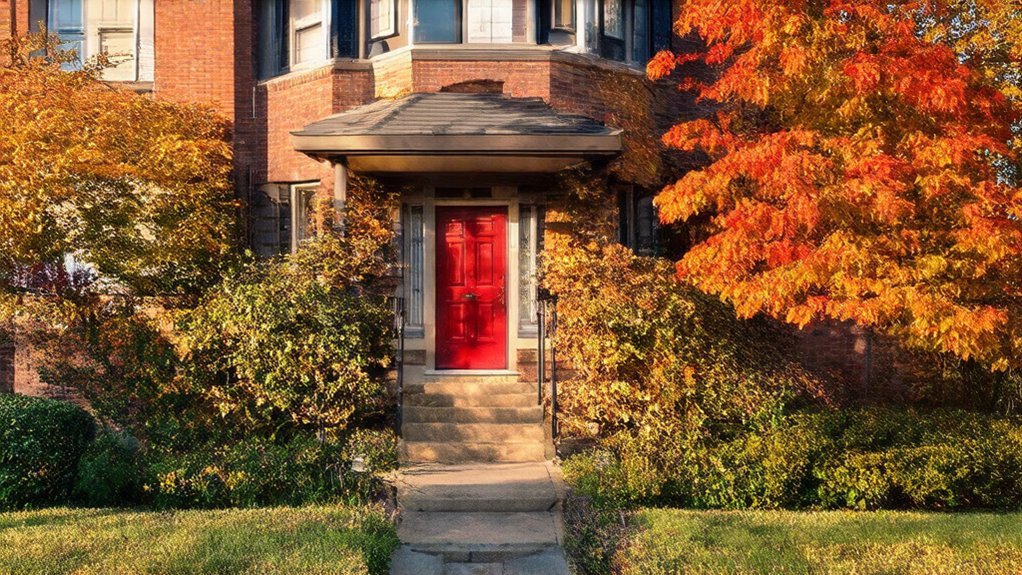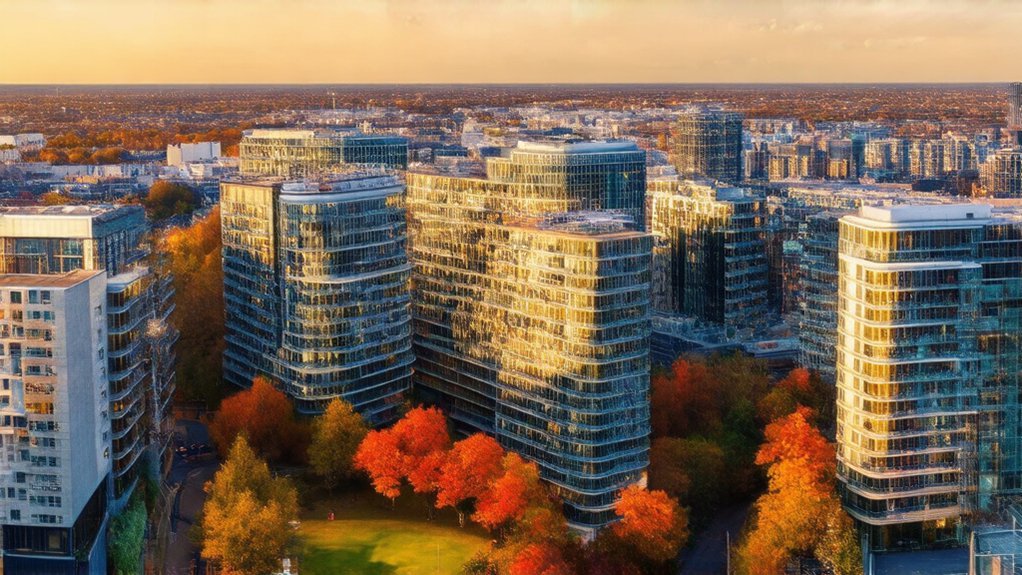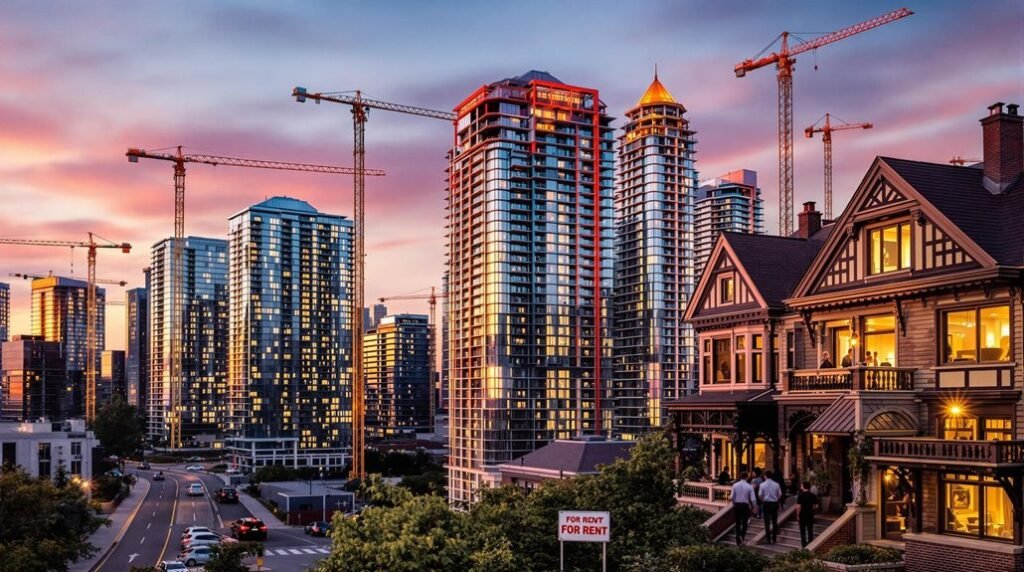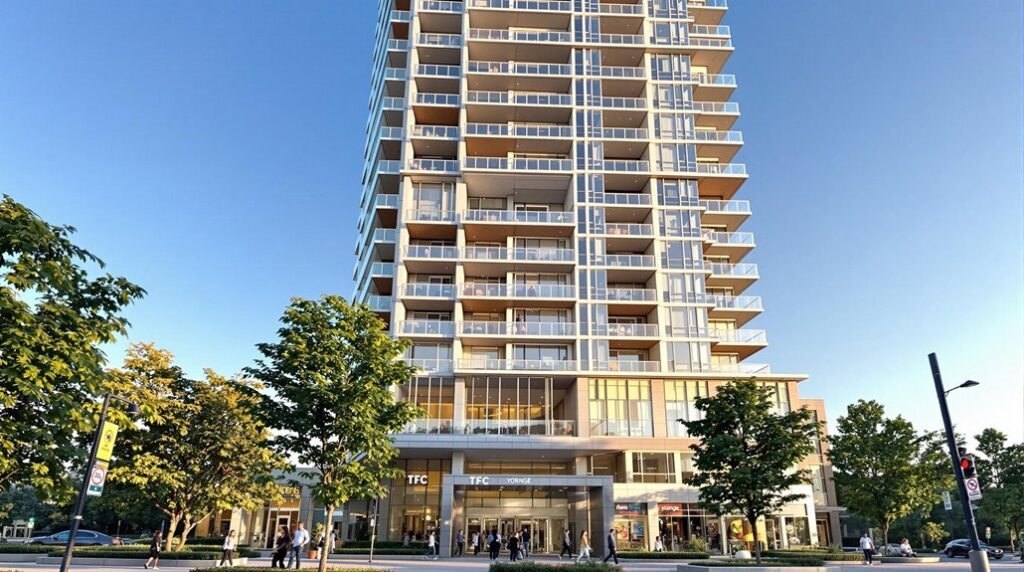Local developments can have a big impact on your home's sale price. New roads, shopping centers, and parks can boost your property value by 10-20%. Better infrastructure and amenities make neighborhoods more desirable, attracting buyers and driving up prices. But it's not all rosy – some changes might hurt your home's worth. Zoning shifts, increased traffic, or too many similar homes can create challenges. Keep an eye on job growth and new businesses too, as they often signal rising property values. To make the most of local developments, stay informed and consider how they might affect your home's appeal. There's more to uncover about maximizing your property's potential in a changing area.
Infrastructure Improvements and Property Values
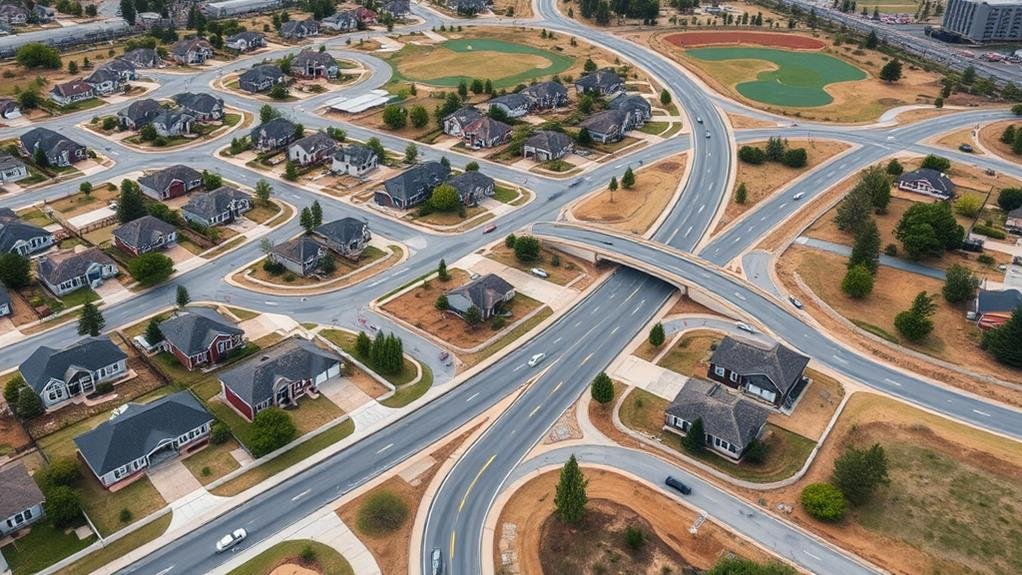
With the rise of urban development, infrastructure improvements have become a key driver of property values. If you're looking to sell your home, you'll be happy to know that new roads and public transport systems can boost your property's worth by 10-20%!
In North York, major transit hubs like Finch Station and Sheppard-Yonge Station have greatly increased property values in surrounding areas. Future developments, such as the Finch West Light Rail Transit, are expected to further enhance real estate prices.
Here's how infrastructure affects your home's value:
- Transit accessibility: Homes near public transit stations often see higher appreciation rates. If you're within a half-mile of a station, you're in luck!
- Reduced commute times: New highways make your area more desirable, as people love shorter drives to work.
- Community engagement: Better infrastructure fosters community growth, making your neighborhood more attractive to buyers.
- Lifestyle appeal: Enhanced connectivity promotes a desirable lifestyle, which means more interest from potential buyers.
Commercial Development's Influence on Prices
Infrastructure improvements aren't the only factor influencing property values. Commercial developments can have a huge impact on your home's worth too! When new shopping centers or entertainment venues pop up in your area, you might be in for a pleasant surprise.
Market Watch Minute offers essential insights into these real estate trends, including the effects of commercial development on residential property values.
Here's how commercial development can boost your property value:
- Job creation: New businesses mean more local jobs, attracting people to the area.
- Better services: You'll have easier access to shopping and entertainment, making your neighborhood more desirable.
- Increased demand: People want to live close to these amenities, driving up home prices.
- Demographic shifts: Higher-income folks often move in, further increasing property values.
The retail attractiveness of new commercial spaces can be a game-changer for your home's worth.
Studies show that properties near new retail hubs can see value increases of 10-20%! That's nothing to sneeze at.
Residential Projects in Your Area
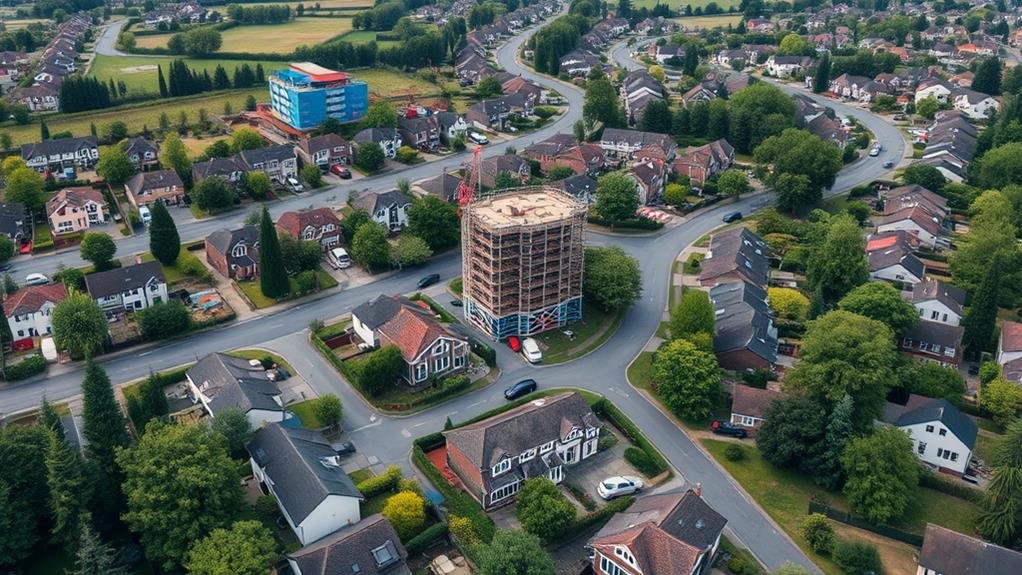
Residential projects sprouting up in your neighborhood can be a double-edged sword for property values. On the bright side, new developments often bring modern amenities that attract buyers, potentially boosting your home's sale price by 10-20%. It's like getting a free upgrade!
However, these projects can face community resistance, leading to prolonged approval processes and increased costs for developers, which may impact the overall market dynamics.
Here's how these projects can affect your home's value:
- Attracting affluent buyers: High-end developments can uplift property values in the whole area. Your home might suddenly become the hot ticket in town!
- The "halo effect": New builds can make your existing home more appealing. Buyers might see your place as a bargain compared to pricier new constructions.
- Quality matters: Well-built projects with great community features can make your whole neighborhood more desirable.
But watch out! An oversupply of similar homes might create competition and drive prices down. It's all about balance.
To make the most of new residential projects:
- Stay informed about upcoming developments
- Consider updating your home to match buyer preferences
- Highlight your property's unique features when selling
Zoning Changes and Market Dynamics
Ever wondered how a simple change in zoning laws can shake up your property's value? It's like a game-changer for your neighborhood!
When zoning regulations shift from residential to mixed-use or commercial, it opens up a whole new world of possibilities.
Here's the scoop:
- Zoning changes can make your property more valuable
- They create new opportunities for development
- Areas with increased density often see higher demand
As a savvy property investor, you'll want to keep your eyes peeled for planned zoning changes. They can seriously impact your property's potential and how easy it's to sell.
Remember, these changes affect what can be built in your area, which influences the types of homes available and how desirable they are.
But it's not all sunshine and rainbows. While zoning changes can bring cool new amenities and boost property values, some folks worry about traffic and overcrowding.
It's like a double-edged sword!
Public Amenities and Neighborhood Desirability
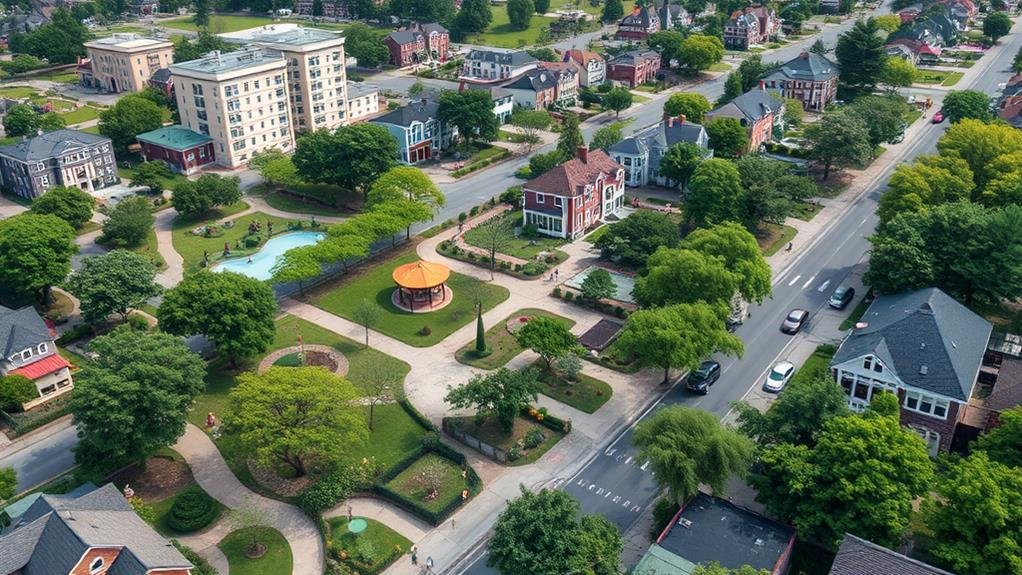
Quality of life in a neighborhood often hinges on its public amenities. When you're selling your home, these community features can make a big difference in your property's value.
Let's explore how public amenities affect your home's desirability and price tag!
First off, parks and recreational facilities are a huge win for homeowners. They're not just great for community engagement – they can boost your home's value by 5-20%! That's right, your local park could be a secret money-maker.
Schools are another big player in the property value game. If you're lucky enough to live near top-rated schools, you might see your home's value jump by 10-20%. That's a pretty sweet deal, right?
Don't forget about healthcare facilities and libraries. These amenities make your neighborhood more appealing, which means more buyers and higher prices. It's all part of smart urban planning.
Here's a quick rundown of amenities that can increase your home's value:
- Parks and recreation areas
- Good schools
- Healthcare facilities
- Libraries and community centers
- Public transportation
Economic Growth's Effect on Pricing
The economic heartbeat of a region pumps life into its housing market. When an area's economy is thriving, you'll notice a ripple effect on property prices. It's simple: more jobs mean more people, and more people mean higher housing demand.
Here's how economic growth affects your home's value:
- Job creation boosts buyer interest
- New businesses and expanding industries bring in workers
- More workers need places to live, driving up demand
- Rising wages increase purchasing power
- People can afford to spend more on homes
- This pushes property values up by 10-20% in some cases
- Tech booms create housing hotspots
- Think Silicon Valley or Seattle
- Skilled workers flock in, competing for limited housing
To stay ahead of the game:
- Keep an eye on local GDP growth
- Watch employment statistics in your area
- Notice new businesses popping up nearby
Balancing Development and Community Needs
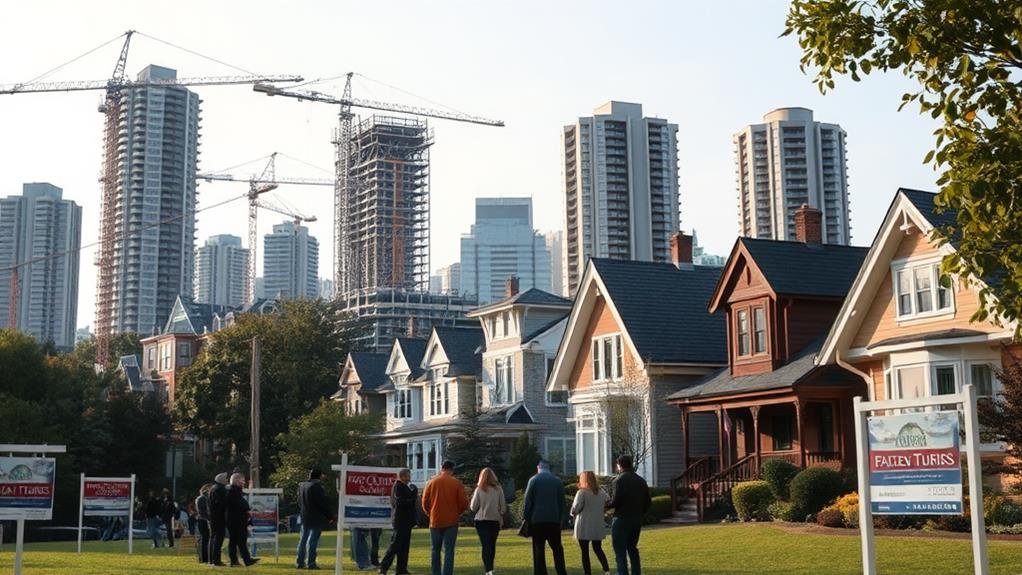
While economic growth drives housing demand, it's equally important to contemplate how new developments impact existing communities.
You'll want to keep an eye on how your neighborhood balances progress with preserving its character.
Community engagement is key in this process. When developers involve local residents in planning, it creates a win-win situation.
You might see:
- New amenities that actually fit your needs
- Preservation of local landmarks you love
- Affordable housing options to keep your neighbors around
Mixed-use developments are becoming more popular, and for good reason! They can breathe new life into your area by combining:
- Homes
- Shops
- Green spaces
- Offices
This mix creates vibrant, walkable neighborhoods that boost property values.
But it's not all rosy. Keep tabs on potential downsides like:
- Rising costs that might price out long-time residents
- Increased traffic or parking issues
- Changes to the neighborhood's "feel"
Conclusion
Your home's value isn't just about four walls and a roof. It's like a ship on the sea of local development. New roads, shops, or parks can lift your property's worth, while other changes might create choppy waters. Stay informed about what's happening in your area. Talk to local officials and real estate pros. By understanding these currents, you'll be better equipped to navigate the market and make smart decisions about your biggest investment.


